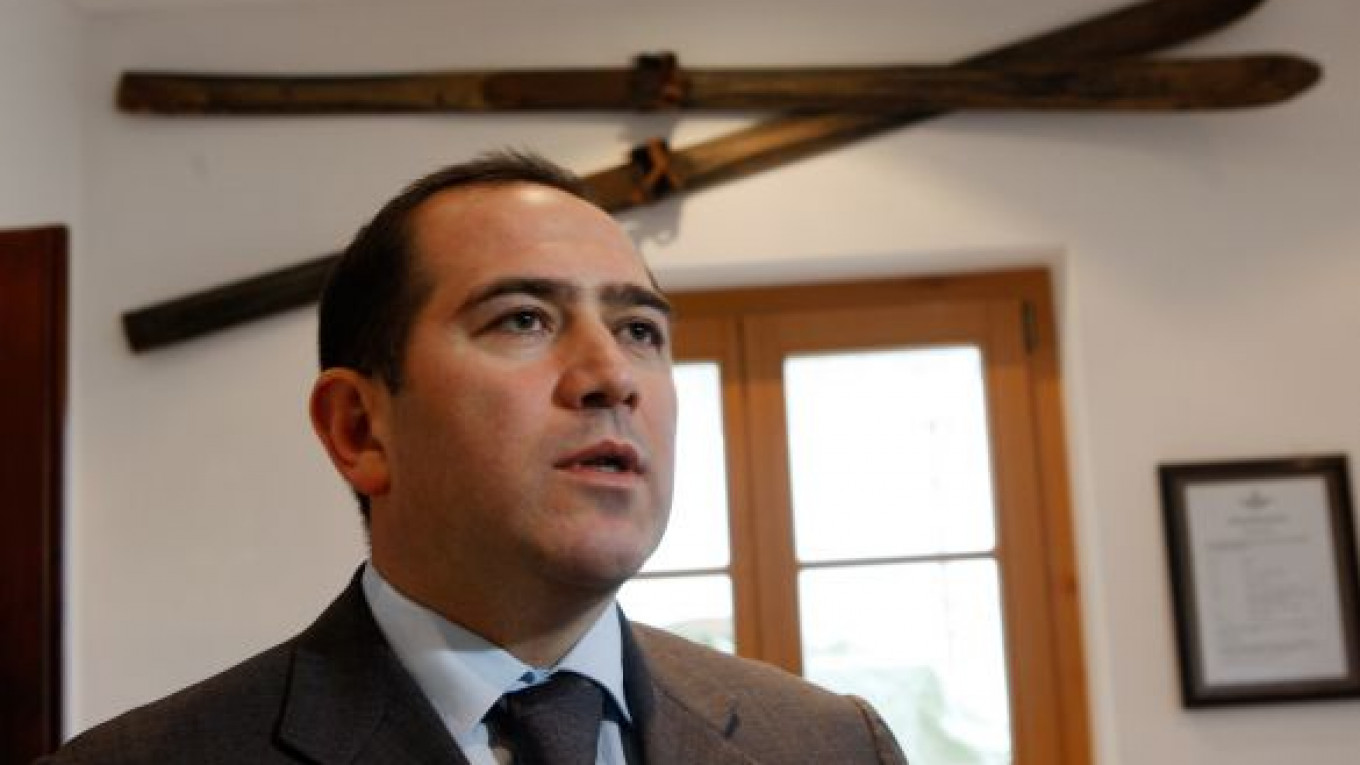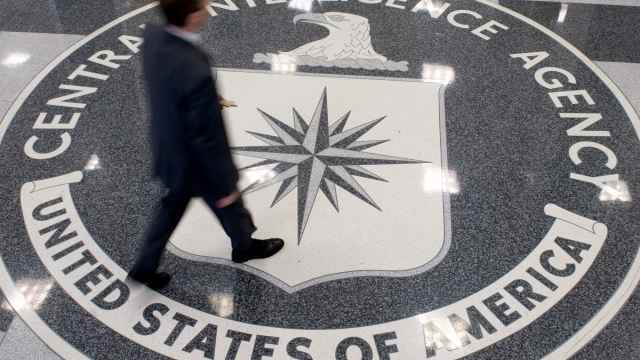The timing couldn't have been worse. Russia's government unveils a plan to build five ski resorts in the majestic, largely uncharted slopes of the North Caucasus. And asks executives at the World Economic Forum to join in the $15 billion investment.
The problem: The Wednesday night presentation came two days after a bomb blast pummeled the international arrivals terminal of Moscow's largest airport, killing 35. Suspicions immediately fell on extremists from the North Caucasus — including Chechnya, which fought two wars with Moscow over the last 16 years, and the neighboring Russian republic of Dagestan, future home to one of the new resorts.
But the project's backers were undaunted.
"The events in Moscow, strange as it seems … show that we need to develop this kind of project even more, because it's clear that if people are busy with something, they have their work and their family, then it will be difficult for these people to be pushed to carry out such extreme acts," said Kremlin envoy Akhmed Bilalov, a native of Dagestan who presented the plan at the forum of world business and government leaders in Davos.
"So I don't think it will change our plans," he said.
Even before the airport blast, for some at Davos, Russia's reputation for business-friendliness was clouded by a new prison sentence for long-jailed tycoon Mikhail Khodorkovsky, the death in prison of corporate lawyer Sergei Magnitsky, and Russia's failure to prosecute documented human rights abuses.
But some of the world's biggest companies have billions in investments in Russia and have weathered the difficulties in exchange for access to a large and lucrative — if volatile — emerging market.
Russian authorities vaunted a new example of this Thursday: Anti-monopoly authorities gave the go-ahead for PepsiCo to buy a majority stake in Wimm-Bill-Dann Foods, Deputy Prime Minister Igor Shuvalov announced in Davos. The $3.8 billion deal announced last month creates Russia's biggest food and beverage company and is Pepsi's largest international acquisition ever.
The government calls the resort plan an effort to address the poverty and high unemployment that feed the insurgency. But security isn't the only reason tourists are wary of the area. Infrastructure and support services are largely lacking around the Caucasus.
President Dmitry Medvedev, giving the forum's keynote address Wednesday night, insisted that the bombing should not cow his compatriots — or foreign investors.
Medvedev enumerated the reasons why foreign companies should inject badly needed funds into a country plagued by corruption and too dependent on oil, and where investors have been burned time and again by a heavy-handed state.
William Browder, a U.S.-born investment fund manager once a champion of Russian investments and later deported from Russia, said the ski resort plan "is the most absurd thing I've ever heard."
"It takes a lot of good luck and good terrain and good weather to have a profitable ski resort and many ski resorts are not profitable," he told The Associated Press. "If you add having to ski fast and dodge bullets, I think that pretty much makes it a non-starter."
Browder was sent out of the country as a national security threat in 2005, and has accused Interior Ministry officers of illegally taking over assets that his fund managed and using them fraudulently to reclaim $230 million in taxes from the state. Lawyer Magnitsky worked for Browder's fund, was jailed and then died in 2009 at age 37 when the pancreatitis he developed in jail was left untreated.
Reactions among those listening to Medvedev's speech were mixed: Some were skeptical of his commitment to rule of law and openness to foreign capital, and others were willing to give him the benefit of the doubt.
"He was very clear, [Russians] have to deal with security and we have to deal with other issues, diversification of the economy, improving the rule of law, access to information, to the Internet," said Joe Sadi of Booz & Co.
The ski resort project — dubbed Peak 5642, the altitude of Elbrus, the highest mountain in the Caucasus — aims to see first visitors as early as 2014, the year Sochi hosts the Winter Olympics. Monday's attack called into question Russia's ability to safely host such major international events, including the 2018 World Cup.
Prime Minister Vladimir Putin said last week that the government would allocate 60 billion rubles ($2 billion) this year toward the resort construction, but the bulk of the $15 billion needed is to come from private investors.
Organizer Bilalov, who is also vice president of the Russian Olympic Committee, said security measures for the resorts are being studied, but "we can't put a police officer at every lift, it's impossible."
He said the project would create 150,000 jobs, and is courting French, Austrian and German companies for help.
"Today tourists from 60 countries come to Elbrus, despite the fact that it's dangerous. There are all kinds of people; there are people who like extremes," he said, with a laugh.
A Message from The Moscow Times:
Dear readers,
We are facing unprecedented challenges. Russia's Prosecutor General's Office has designated The Moscow Times as an "undesirable" organization, criminalizing our work and putting our staff at risk of prosecution. This follows our earlier unjust labeling as a "foreign agent."
These actions are direct attempts to silence independent journalism in Russia. The authorities claim our work "discredits the decisions of the Russian leadership." We see things differently: we strive to provide accurate, unbiased reporting on Russia.
We, the journalists of The Moscow Times, refuse to be silenced. But to continue our work, we need your help.
Your support, no matter how small, makes a world of difference. If you can, please support us monthly starting from just $2. It's quick to set up, and every contribution makes a significant impact.
By supporting The Moscow Times, you're defending open, independent journalism in the face of repression. Thank you for standing with us.
Remind me later.






